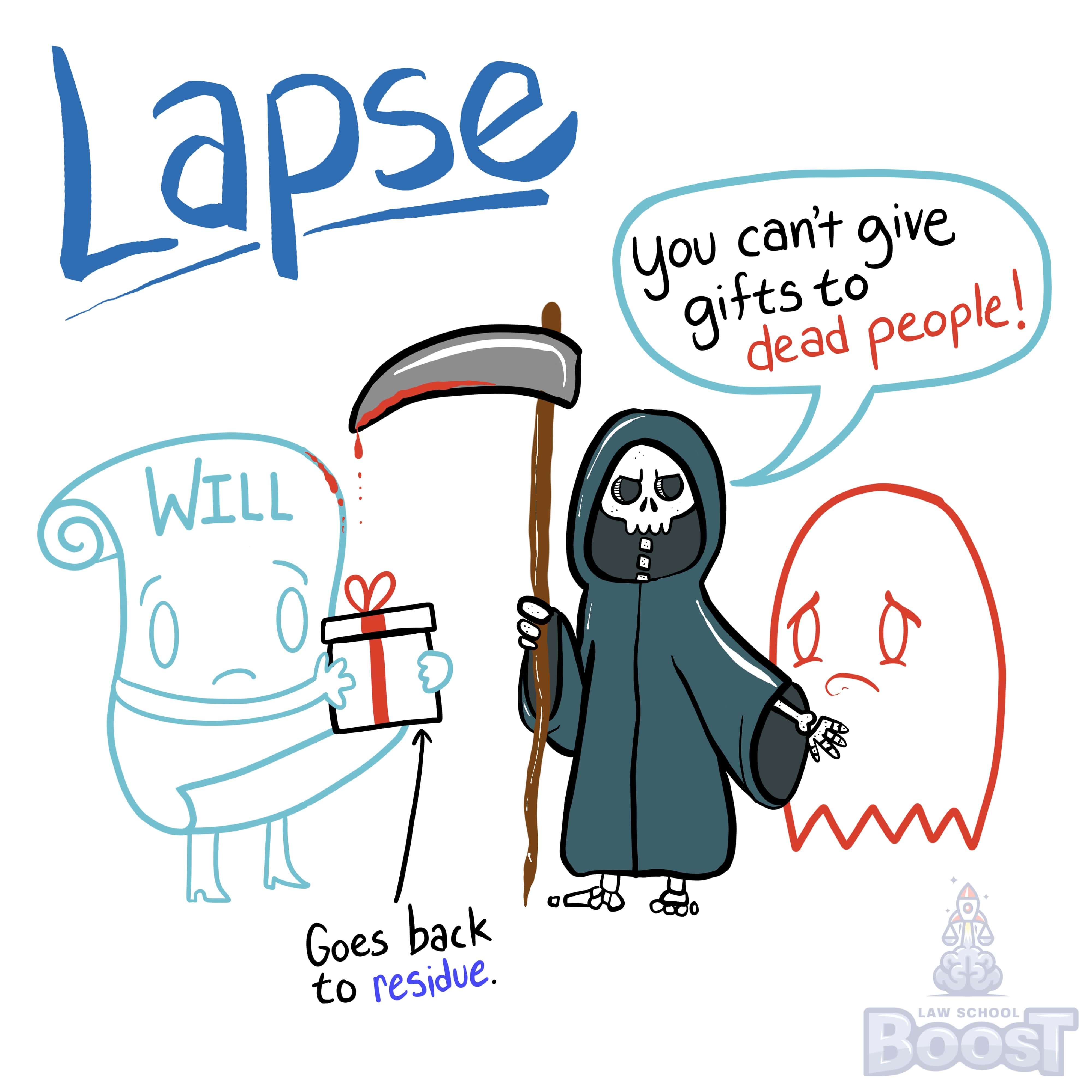😭
Wills • Changes in Beneficiaries
WILLS#040
Legal Definition
If the beneficiary predeceases the testator, the gift lapses and falls to the residue in the absence of an applicable anti-lapse statute.
Plain English Explanation
Wills can't give gifts to dead people. So if Bob leaves Sam $100, but Sam dies before Bob, what happens to the $100?
Usually that $100 will go back into the residue, which is a sort of gross word for "the remainder of the estate that hasn't been given out yet." In other words, it's not uncommon for a testator to fail to account for every single penny of their estate when they are creating a will. The "leftovers" of the estate (that were not assigned to others via the will) are the residue.
Some states have "anti-lapse statutes, which tries to make things a bit more fair by allowing Sam's surviving children or family to take the $100 instead.
Usually that $100 will go back into the residue, which is a sort of gross word for "the remainder of the estate that hasn't been given out yet." In other words, it's not uncommon for a testator to fail to account for every single penny of their estate when they are creating a will. The "leftovers" of the estate (that were not assigned to others via the will) are the residue.
Some states have "anti-lapse statutes, which tries to make things a bit more fair by allowing Sam's surviving children or family to take the $100 instead.
Hypothetical
Hypo 1: Bob writes a will leaving his cherished classic car to Sam. Unfortunately, Sam passes away before Bob. Result: Since Sam is no longer around to receive the car, the gift of the car 'lapses'. This means the car goes to the residue of Bob's estate, being distributed according to the rest of the will's instructions.
Hypo 2: Bob's will states that if Sam predeceases him, the gift meant for Sam (a valuable watch) should go to Sam's daughter. Sam dies before Bob. Result: In this case, the rule of lapse does not apply because Bob's will specifically provides an alternative recipient (Sam's daughter) if Sam is not alive. Thus, the watch goes to Sam's daughter, not into the residue of the estate.
Hypo 2: Bob's will states that if Sam predeceases him, the gift meant for Sam (a valuable watch) should go to Sam's daughter. Sam dies before Bob. Result: In this case, the rule of lapse does not apply because Bob's will specifically provides an alternative recipient (Sam's daughter) if Sam is not alive. Thus, the watch goes to Sam's daughter, not into the residue of the estate.
Visual Aids



